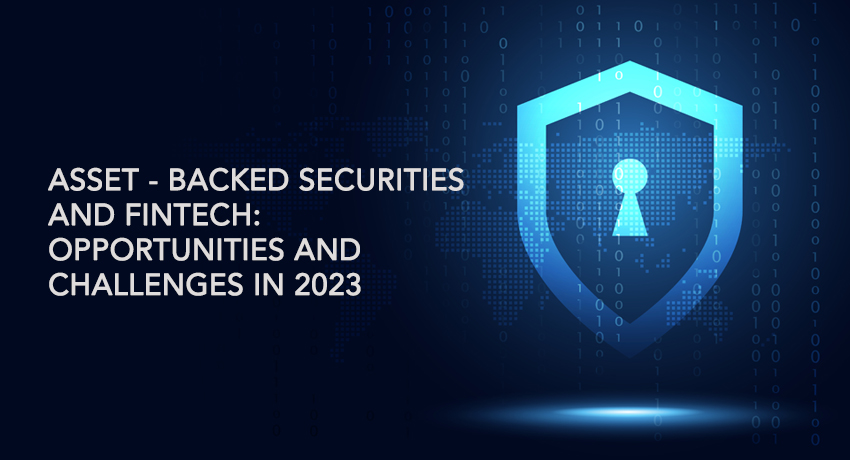Asset-backed securities (ABS) have long been a popular financial vehicle for securitizing and diversifying the risks associated with diverse underlying assets. The rise of fintech has introduced new opportunities and challenges to the ABS market in recent years. Fintech firms are transforming the way ABS are originated, structured, and traded by exploiting innovative technologies and alternative data sources. Opportunities Access to Diversified Asset Classes Fintech platforms are enabling the securitization of assets other than typical mortgages and auto loans. Peer-to-peer loans, small business loans, supply chain finance, and even revenue streams from subscription services can now be securitized using fintech-driven ABS. This expansion provides investors with new investment choices and helps issuers diversify their funding sources. Greater Efficiency and Transparency Fintech solutions are improving the ABS origination and structuring process, increasing efficiency, and lowering costs. Blockchain technology, for example, offers safe and transparent asset ownership documentation, allowing for faster settlements and lowering counterparty risks. Smart contracts automate payment flows and enforce pre-set rules, ensuring accuracy and removing the need for middlemen. These technical advances result in improved operational efficiency and transparency throughout the ABS’s lifespan. Improved Risk Assessment and Pricing Fintech platforms use advanced data analytics and artificial intelligence to improve risk assessment and pricing models for ABS. Fintech companies may produce more accurate and dynamic risk assessments for underlying assets by analyzing massive volumes of data, including alternative data sources. This better risk assessment enables more exact pricing of ABS, which benefits both investors and issuers. Challenges Regulatory Compliance: Fintech-driven ABS raises new regulatory issues. Compliance with existing securities regulations, investor protection requirements, and privacy legislation remain important factors for fintech firms. Regulators are adapting to the changing landscape, but firms in the fintech sector may be required to demonstrate adequate risk management frameworks, data protection measures, and compliance with Know Your Customer (KYC) and Anti-Money Laundering (AML) standards. Cybersecurity and data security threats: Data security and cybersecurity threats grow increasingly obvious as fintech platforms collect and analyze massive volumes of sensitive data for ABS origination and administration. It is critical to maintain data privacy and protect against cyber dangers. Fintech companies must invest in robust security measures, conduct frequent security audits, and follow industry best practices to prevent these risks. Investor Education and Trust: The incorporation of fintech into ABS necessitates educating investors on the new structures and technology involved. Building trust in fintech-driven ABS requires transparency in data sources, risk assessment processes, and underlying technology. Providing clear and accessible disclosures regarding ABS’s assets, risks, and potential returns will be critical for investor confidence. Fintech’s inclusion in the asset-backed securities market brings both opportunities and concerns in 2023. Fintech platforms increase access to a broader range of assets, improve efficiency and transparency, and improve risk assessment and pricing methods. However, regulatory compliance, data security, and investor education are critical problems that must be solved to ensure the long-term sustainability of fintech-driven ABS. As the fintech industry evolves, collaboration among regulators, fintech businesses, and market participants will be critical to realizing the full potential of fintech in the asset-backed securities market.
